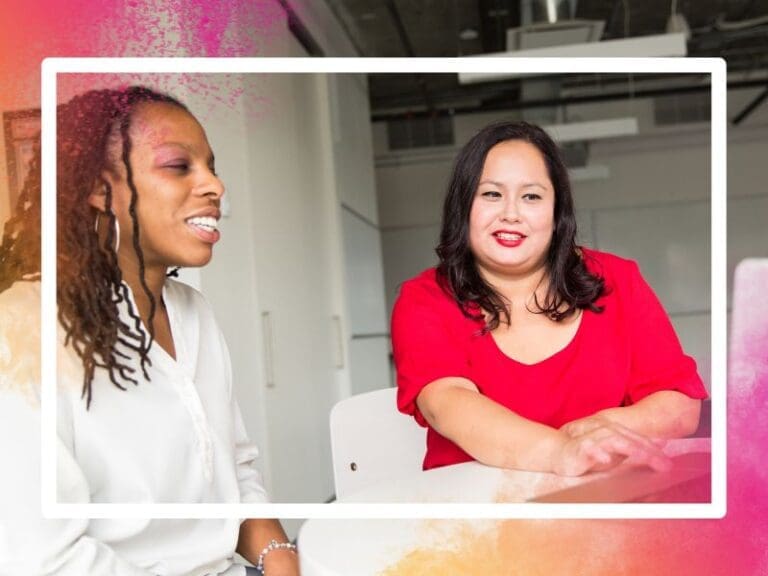
Caroline is a partner and head of the CIO & technology officers practice at Odgers Berndtson. She began her career in executive search in 2000 and has since developed a niche in the appointment of senior IT management executives, with a particular focus on cyber security. Prior to joining Odgers Berndtson, Caroline operated in executive search within the IT services and management consultancy arena where she recruited senior managers through to partner level.
MENTORS AND SPONSORS CAN BE INCREDIBLY POWERFUL FOR PERSONAL AND PROFESSIONAL DEVELOPMENT.
They can act as role models, offer invaluable feedback, help navigate difficult conversations, provide access to a wider network, and ensure the right words are said to the right people. Particularly for women in the technology industry, where there are few role models and plenty of challenges to career progression, mentors and sponsors are crucial.
WHAT’S THE DIFFERENCE BETWEEN MENTORSHIP AND SPONSORSHIP?
A mentor is someone who provides guidance, advice, and support to help a mentee achieve their goals. They offer insight into their own experiences and provide feedback to help the mentee develop their skills and knowledge. Importantly, mentors can help women in technology broach discussions about salary and progression, challenge biases and expectations with confidence, improve self-promotion, and capitalise on their strengths.
A sponsor, on the other hand, is someone who actively advocates for their ‘protégé’ and helps to create opportunities for them. They use their own networks and influence to promote the career advancement of the person they are sponsoring. Sponsors are arguably even more important as a woman’s career progresses, especially in Closing the Gender Gap in STEM: Additional Measures Needed, as they will often ‘put in a good word’ to the right people, making them invaluable in providing opportunities to grow and develop.
WHY IS MENTORSHIP AND SPONSORSHIP CRUCIAL FOR CAREER DEVELOPMENT?
Mentorship and sponsorship are crucial for career development, especially for women who may struggle with self-promotion and suffer from imposter syndrome.
Women often undervalue their own skills and rely on recognition for their delivery, rather than actively promoting themselves. A good mentor can draw out a person’s strengths, help them establish their abilities and achievements, and provide the confidence to navigate new roles and organisations. Mentors can also help with significant discussion points or transitions, such as navigating office politics and developing relationships with colleagues, senior leaders, or peers in the industry.
Meanwhile, sponsorship can provide a huge confidence boost by letting women know that senior leaders have their back. Sponsors can identify opportunities, connect women with the right people, outline any skills and training they might need, and coach them on building their profile. A good sponsor will also help those they are sponsoring to overcome the underrepresentation and imposter syndrome that women often face in the tech industry.
HOW CAN I FIND A MENTOR OR A SPONSOR?
Finding a mentor or a sponsor isn’t a difficult challenge, and we’ve found most leaders and organisations are open to the idea, even where no formal scheme exists.
We advise people to approach someone they admire; this can be someone in the same company or in the same industry, but ideally is someone who has been successful at what a mentee wants to learn. Unless that person is already mentoring several people or they feel like they’re the wrong person for that mentee, there’s unlikely to be resistance. The prospect of being considered good enough to be a mentor is flattering for most leaders and they’ll jump at the opportunity.
If there’s no one in the immediate network, then self-promotion can be useful for attracting potential mentors and sponsors, rather than actively seeking them out. This might be writing for an industry magazine, a LinkedIn blog post, or if possible, taking part in podcasts. Depending on the area of tech, social media can be a powerful tool for self-promotion.
Finally, there are numerous formal networks women in the technology industry can join. Not only do these provide the opportunity to connect with potential mentors and sponsors but they are a forum for connecting with peers, sharing experiences, and gaining advice and help. They are an easy in-person method of self-promotion and can often lead to job opportunities. Both She Can Code and Odgers Berndtson have their own networks dedicated to women in technology. She Can Code’s community is a place for anyone at any stage of their tech career, while Odgers Berndtson’s Rebus programme connects women in tech with experienced leaders to help them step up into more senior positions.








